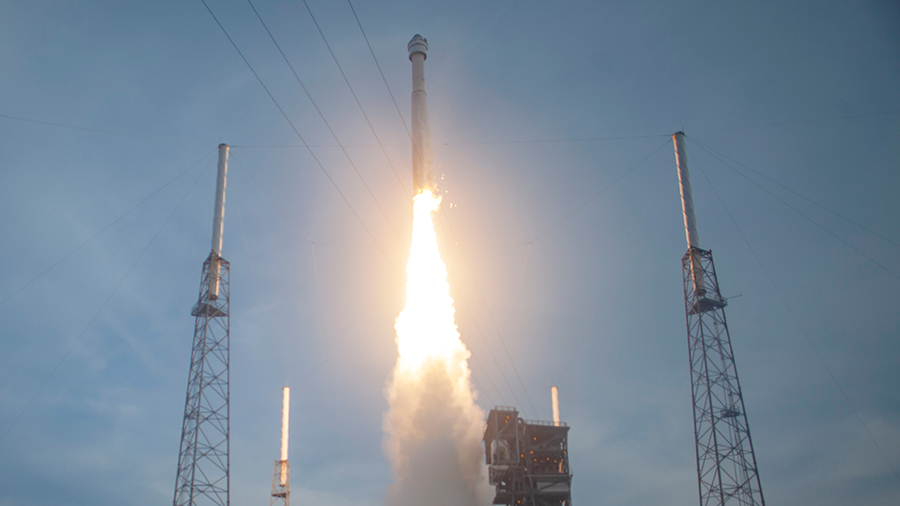Boeing Starliner Proceeding Toward Station Today

Boeing’s CST-100 Starliner is proceeding toward the International Space Station on the NASA-Boeing Orbital Flight Test-2 (OFT-2).
Boeing and NASA met as an International Space Station Mission Management Team (IMMT) this afternoon to review the status of the flight test and approved a plan to proceed toward the final phase of rendezvous and docking, which remains scheduled at for 7:10 p.m. EDT.
Docking broadcast coverage begins at 3:30 p.m. ET on NASA Television, the NASA app, and the agency’s website.
Friday, May 20
- 3:30 p.m. – NASA TV rendezvous and docking coverage begins.
- 7:10 p.m. (approximately) – Docking
Saturday, May 21
- 11:30 a.m. – NASA TV hatch opening coverage begins
- 11:45 a.m. – (approximately) Hatch opening and welcoming remarks
Starliner successfully executed all of its autonomous demonstration burns as well as rendezvous and docking maneuvers, including:
- An abort maneuver demonstration
- Reaction Control System (RCS) attitude hold demonstration
- Abort execution maneuvers
- Phasing burn
- Far-field demonstration
- Vision-based, Electro-Optical Sensor Tracking Assembly (VESTA) system checkout
- NASA Docking System (NDS) cover open and system checkout
Flight control teams continue to learn more about the vehicle and about how it is operating in space, and it continues to perform well as it makes its way toward the station. The Guidance, Navigation and Control (GN&C) systems are performing nominally. Flight software is executing as designed. Power generation is positive. The spacecraft has good link connection with TDRS for commanding of the vehicle. Teams are investigating off-nominal behavior of a thermal cooling loop, however, the thermal subsystem is maintaining stable temperatures.
The teams also looked into the two Orbital Maneuvering and Attitude Control (OMAC) thrusters that shut off early during the orbital insertion (OI) burn. The teams have concluded that a chamber drop in pressure caused the cutoff. That system operated normally during all of the propulsion system demonstrations, and with redundancies in place, does not pose a risk to the rest of the flight test.
For continuing coverage of Starliner’s mission, follow @NASA, @commercial_Crew, and @BoeingSpace, or visit www.nasa.gov, www.boeing.com/Starliner and www.StarlinerUpdates.com.
Learn more about station activities by following the space station blog, @space_station and @ISS_Research on Twitter, as well as the ISS Facebook and ISS Instagram accounts.
Get weekly video highlights at: http://jscfeatures.jsc.nasa.gov/videoupdate/
Get the latest from NASA delivered every week. Subscribe here: www.nasa.gov/subscribe
from Space Station https://ift.tt/xsDncoX
Comments
Post a Comment